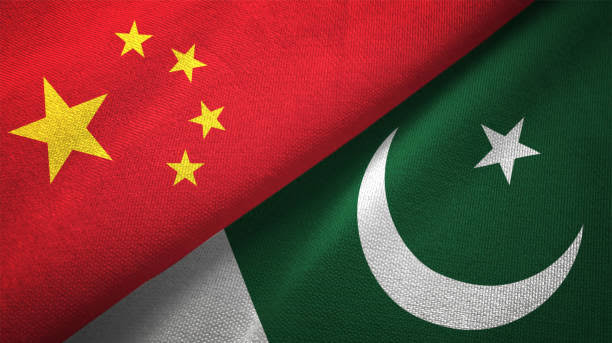The official visit of Muhammad Shehbaz Sharif, Prime Minister of Pakistan, to China from June 4 to June 8, 2024, reflects the depth and strategic nature of the bilateral relationship between Pakistan and China. Here is an analysis of the visit of Prime Minister of Pakistan:
Strategic Partnership and Bilateral Relations
- All-Weather Strategic Cooperative Partnership:
- The term “All-Weather Strategic Cooperative Partnership” emphasizes the enduring and multifaceted nature of the China-Pakistan relationship, characterized by mutual understanding, trust, and support across changing international landscapes. This partnership is solidified by extensive historical ties and strategic alignment.
- Diplomatic and Political Engagements:
- Meetings between Prime Minister Sharif and key Chinese leaders, including President Xi Jinping and Premier Li Qiang, signify the high level of diplomatic engagement. These interactions covered a broad spectrum of issues, including bilateral relations, regional stability, and international cooperation, resulting in extensive consensus on strengthening their strategic partnership.
Economic and Development Cooperation
- China-Pakistan Economic Corridor (CPEC):
- CPEC remains a cornerstone of the bilateral relationship, seen as a model project within the Belt and Road Initiative. The commitment to enhancing CPEC through various development corridors (growth, livelihood, innovation, green, and open corridors) underscores the ambition to elevate the project’s scope and impact on Pakistan’s socio-economic landscape.
- Key projects such as the upgradation of the ML-1 railway line, the Karakoram Highway realignment, and the development of Gwadar Port and its infrastructure are highlighted as critical to the region’s connectivity and economic integration.
- Industrial and Technological Cooperation:
- The signing of the Action Plan for Industrial Cooperation and the emphasis on Special Economic Zones illustrate a focus on Pakistan’s industrialization and economic diversification. The encouragement of Chinese investment in these zones is aimed at boosting Pakistan’s manufacturing and export capacity.
- Enhanced cooperation in mining, agriculture, and energy sectors, including clean energy projects, reflects a comprehensive approach to economic collaboration aimed at sustainable development and technological advancement.
Security and Counter-Terrorism
- Security Cooperation:
- The joint condemnation of the terrorist attack on the Chinese convoy and the commitment to enhancing security for Chinese projects and personnel in Pakistan highlight the serious security concerns and the measures taken to address them.
- Both nations reaffirmed their commitment to combating terrorism with a “zero tolerance” approach and called for international cooperation in counter-terrorism efforts, opposing double standards and politicization of counter-terrorism issues.
Regional and Global Issues
- Regional Stability:
- The statement underscores the importance of peace and stability in South Asia, particularly highlighting the need for resolving the Jammu and Kashmir dispute per UN resolutions. This aligns with China’s traditional stance on the issue and supports Pakistan’s position.
- The discussions on Afghanistan emphasize the necessity of a stable and inclusive political framework and combating terrorism, reflecting both countries’ interests in regional stability.
- Multilateral Cooperation:
- The emphasis on multipolarity, opposition to hegemony, and commitment to multilateralism signal a shared vision for an equitable international order. This includes support for the UN system and adherence to international law.
- The promotion of initiatives like the Global Development Initiative, Global Security Initiative, and Global Civilization Initiative demonstrates a shared commitment to global governance and development issues.
Cultural and People-to-People Exchanges
- Cultural and Educational Exchanges:
- Enhancing cooperation in culture, education, sports, media, and tourism aims to strengthen people-to-people ties and foster mutual understanding.
- Initiatives to improve personnel exchanges and sister city agreements are intended to deepen economic integration and cultural connections.
So, Prime Minister Sharif’s visit to China highlights the robust and strategic nature of the China-Pakistan relationship. The multifaceted cooperation, ranging from economic projects like CPEC to security and cultural exchanges, reflects a deep and comprehensive partnership aimed at mutual benefit and regional stability. Both countries’ commitment to supporting each other’s core interests and collaborating on global issues further cements their strategic alliance.

Mr. Muhammad Ali Pasha is an analyst and expert on Central Asia, South East Asia, China, Türkiye and Middle East having experience in the field of article writing in various renowned journals and newspapers across the globe. Furthermore, he is a writer and poet.


